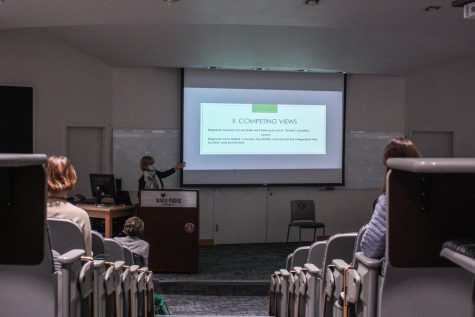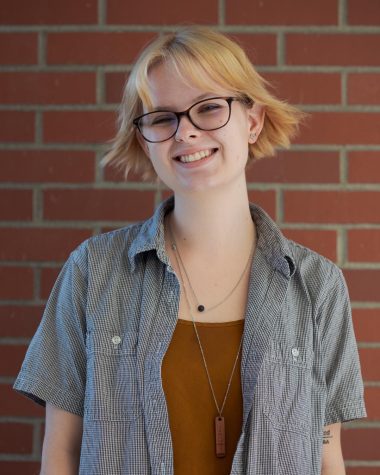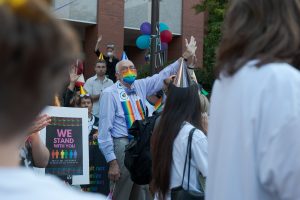Getting green cards
SPU discusses intricacies of migration in today’s society
February 24, 2022

On Feb. 16, Seattle Pacific University students gathered at an event, hosted by SPRINT and MECHA, to discuss the history and current status of refugees, asylum seekers and migration.
The event, called Neither Here Nor There, featured guest speakers Dr. Alissa Walter, Dr. Rebecca Hughes, World Relief Outreach Manager Liz Nelson and an anonymous student’s story.
Walter spoke on the legal restrictions surrounding refugees and asylum seekers. Her knowledge of the history of the Middle East led her to serve as an expert witness in asylum cases. She discussed the complicated relocation process and America’s history with migration and refugees, but also how this is a relatively new controversy.
“Travel is just an essential human activity,” said Dr. Walter. “It’s part of what helps communities survive. This system of really strong, militarized borders is new in human history and it’s creating a whole host of issues as countries need to decide who comes in and who doesn’t.”
Dr. Hughes told the story of the Windrush generation, migrants to Britain who were deported after spending nearly their entire lives there due to improper documentation. She spoke of how it reflects the discourse surrounding migration that has been present for hundreds of years.
“There is a racial legacy of empire that lives on in Britain, with immigrants being synonymous with race, and not synonymous with worker, neighbor, friend,” said Hughes. “There was no clear voice to demonstrate that migrants contribute to the economy, enrich culture and again build stronger communities.”
Attendees also got to listen to a recording of a student, who grew up undocumented, share what that experiece was like.
“I haven’t always known I was undocumented,” said the student. “But it brought me to a realization that life was going to get 100 times more difficult, because when you’re undocumented, you have so many more limitations and your future kind of seems to get thrown down the drain. There’s no more future anymore, or at least that’s what it seemed like for me.”
Hughes is grateful that this student shared their story with SPU, and believes that people’s stories have power.
“The Windrush generation in Britain spoke up about the government unfairly targeting them, and they were heard with the help of journalism,” said Hughes. “I wasn’t sure if we were going to hear from our student who happens to be undocumented, but people’s stories can have the power to influence attitudes and eventually policies.”
Hughes also believes this is an especially important conversation for SPU to have as a Chrisitan university.
“If we’re truly going to be a Christian campus, I think we have to see ourselves in our global place, and we have to understand that people are seeking safety and a way to live and thrive,” said Hughes. “I think that’s essential as a Christian. If we are who we say we are, we have to live it.”
Michael Chew, immersive community engagement coordinator in the John Perkins Center, believes that events like these are important for the SPU community to truly live out SPU’s motto of “engaging the culture and changing the world.”
“We have to really dig deep and understand the complex histories of the things that we’re trying to engage in before we actually affect change and justice,” says Chew.
Walter encourages students to seek out volunteer opportunities to engage with the community.
“I think that direct person-to-person volunteer opportunities to work alongside immigrant communities and refugee communities, in ESL programs or in community gardens, and to come alongside and support their work, is one of the most life changing experiences that a student can have,” said Walter.
There are many ways students can get involved. World Relief offers volunteer opportunities, both in-person and virtual, for students to help. There are also internship and volunteer opportunities available at Northwest Immigrants Rights Project, Refugee Women’s Alliance, and Washington Immigrant Solidarity Network. Students are also encouraged to follow these groups on social media, donate if possible and continue to educate themselves on immigrant rights.


























































































